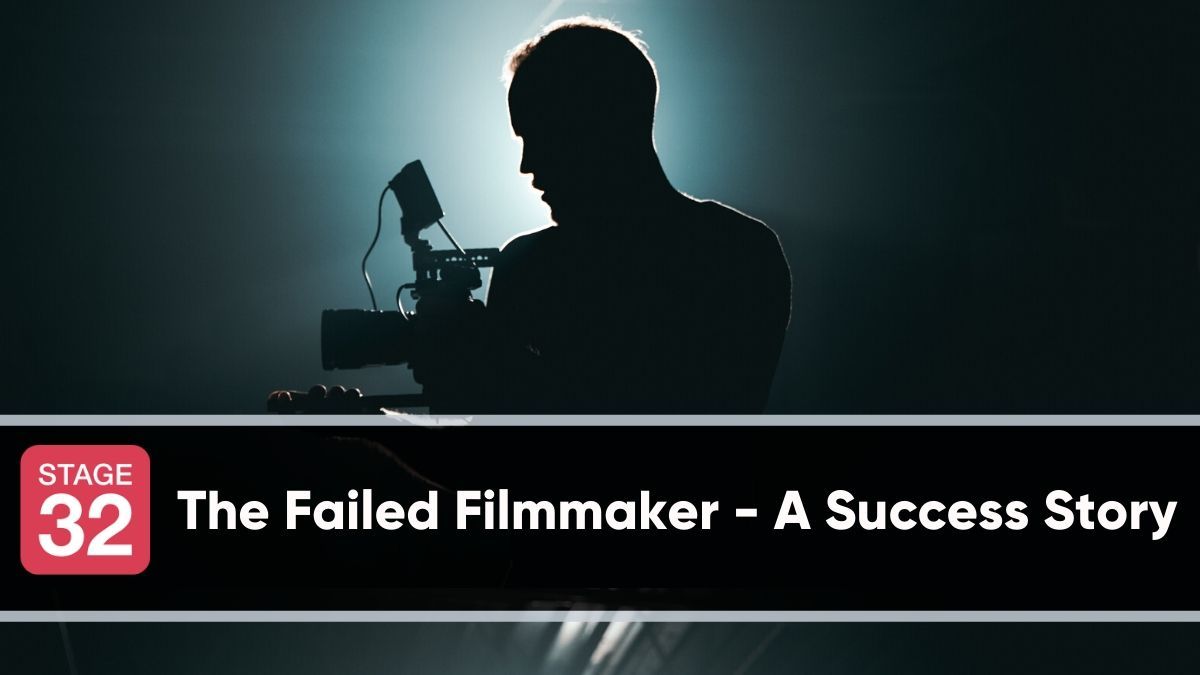Film Festivals vs. Film Markets: How to Network in the New Virtual World
There are probably thousands of film festivals held every year. The number of actual film markets is a lot less. Under the current COVID-19 crisis, many of these film festivals and markets have introduced online editions, to either (temporarily) replace the physical versions or to run alongside the physical versions of these may happen after all if and when the COVID-19 crisis is over or at least significantly reduced.
What is the difference between a film festival and a film market? And what is the value of – physical and online – film festivals and markets for networking? And what other, related or unrelated, networking tools can filmmakers tap into, especially during the current COVID- 19 crisis?

Networking for Filmmakers
Let’s start with defining networking. Merriam-Webster gives the following definition of “networking”:
The exchange of information or services among individuals, groups, or institutions; specifically: the cultivation of productive relationships for employment or business
If we apply the definition of networking to the independent film industry, we can list the following reasons for filmmakers to look out for networking opportunities:
- Story-making: connecting with people to work on stories and scripts
- Development: looking for partners, information and inspiration to develop film projects
- Production: the search for co-production partners and strategic partnerships
- Financing: exploring financing possibilities for a film project
- Distribution & Sales: finding distribution and sales opportunities for content
- Marketing: putting your content, your company or yourself on the global map and in the international spotlight
- Learning & Education: learning about filming locations, tax incentives, current content creation tendencies, content and development programs
- Business: more in general, any and all business activities related to content creation

Film Festivals and Film Markets
Taking into account the above-mentioned reasons for filmmakers to go networking, the questions comes up if you should go to film festivals or to a film markets, or perhaps both.
In essence, the difference between a film festival and a film market is that they each serve another purpose.
A film festival is a space to showcase films, and generally comes with film screenings, prizes, and best category nominations. A film festival is all about the art of film, the spectacle and glamour, and can be seen as a true celebration of the creative side of filmmaking.
A film market, on the other hand, is basically a marketplace for buying and selling films. In addition, it is often a hub for all other kinds of business aspects of filmmaking, which centers around content development, production options, and film financing.
There are local and international film festivals and markets, and film festivals and markets that focus on a specific genre or audience.
Examples of international film festivals are the Cannes Film Festival, the Toronto International Film Festival, the Berlinale, and the Venice Film Festival.
Examples of international film markets are Marche du Film (held during the Cannes Film Festival), the European Film Market (held during the Berlinale), and the American Film Market (AFM, held in November in Santa Monica, California).
As you can see, sometimes film markets are organized alongside or during film festivals, as the festivals as such attract a lot of business movement.
Sometimes film festivals have business sections themselves which might also offer networking opportunities, co-production forums, webinars, panels, and opportunities to schedule meetings.
Therefore, both film festivals and film markets can offer excellent networking opportunities for filmmakers, and it depends on what the filmmaker is looking for specifically which festival or market is the best to attend.

Alternative Networking Spaces for Filmmakers
Film festivals and film markets are not the only venues that offer networking opportunities for filmmakers.
Film business communities, conference and forum organizers, special interest groups, leading entertainment companies, and regional, local or national governments may offer platforms, events, expos, trade shows, webinars, and panels which may provide for networking options for filmmakers.
Examples are NALIP (National Association of Latino Independent Producers) who organize year-round events and programs, CineEurope that offers a yearly trade show promoting European cinema, and our own Stage 32 that offers a platform with permanent networking opportunities through online individual and group meetings and conversations, topic discussions, webinars and panels.
Physical vs. Online
As of the beginning of 2020, when the COVID-19 crisis started to hit international traveling and social distancing was introduced, all of a sudden physical attendance of networking events came to a still stand and online networking got a big boost.
The main international film festivals and film markets, as well as other physical networking events, started to cancel or postpone the physical editions and introduce online versions.
The online versions often offer a similar range of networking opportunities, including webinars, panels, and individual or group meetings.
The transition from physical editions to online editions offers advantages and disadvantages.

Advantages of online events may be that:
- The barrier to participate is lower: you can participate from the comfort of your home, instead of needing to commute or travel
- The costs of participation are, sometimes substantially, lower: often it is just a participation fee which for many filmmakers is affordable, and no travel, dining, car rental or accommodation costs
- They are more efficient: you can focus exclusively on the event, the meeting or the conversation, and when it is over, immediately move on to the next occupation
- They are more easily combinable (at least if you are capable of multi-tasking): you can listen in to a meeting, webinar or panel, and continue working, go for a walk, assist the kids with homeschooling or even do exercises!
However, there may also be considerable disadvantages:
- As the face to face experience, which can be very important to perceive mood, seriousness, interest, excitement, or disappointment, is gone
- Since if there is no traveling, the learning experience changes: cultural experiences, listening to and interacting in other languages on the streets, tasting local food, experience other climates – these experiences are all gone
- Often, after years of experience of being physically present at a film festival, film market or a yearly event, we knew precisely where to go for meetings, food, and gatherings: without them, we may feel lost in the online world
- Switching from physical to online requires a change of mindset, which for many people may be difficult to make
Conclusion
Networking is of importance to filmmakers for a variety of reasons, including story-making, business, development, production, financing, distribution & sales, marketing, and learning & education. There is a difference between film festivals and film markets, and both can offer networking opportunities. In addition to film festivals and film markets, there are other occasions that offer networking opportunities for filmmakers and these include webinars, panels, platforms, and events. The COVID-19 crisis has put online editions on the map, in replacement of, or in addition to, physical networking.
The advantages of the online editions may be that the barrier to participate is low, the costs are lower, online editions may be more efficient, and are easily combinable with other activities. The disadvantages may be the social loss of the face to face experience, the experiential loss of not traveling, loss of direction as literally the online versions are location-independent, and the switch to another, digital, mindset.
What are your experiences with film festivals, film markets, networking, and attending physical and online events? I would love to hear about your experiences. Please share in the comments below!
About David Zannoni:

I have been working in film and TV since 2007. Through my consultancy firms XamanHaC and Zannoni Media Advisors, I have been involved as consultant and representative for amongst others Fintage House and Visualnet. For Fintage I negotiate agreements for films and television series, and am involved in business development and relationship management specifically in the US, Latin America and Spain. For Visualnet I expand their business globally and specifically in the US, and work on business development and client prospection.
My focus is business & legal affairs, business development and prospection, and production, distribution and financing in and from Latin America. I have given presentations, workshops and seminars at universities across the globe and at events such as the yearly conference of the National Association of Latino Independent Producers in the US (NALIP), the Winston Baker Film Finance Conferences, the Rio Film Market, the Bogota Audiovisual Market (BAM), and at the Rio Film Market and LATC Program in Los Angeles. Born in the Netherlands and a Dutch-Italian citizen, I am fluent in English, Spanish, Dutch and Italian, and basic in German.
More Stage 32 blogs by David Zannoni:
LIVE from Berlinale: Film Markets vs. Film Festivals - Distributing Your Film Worldwide
The Latin American Film Market: A Complete Guide for Filmmakers & Producers
The State of the Entertainment Industry During COVID-19
Everything You Need to Know About Independent Film Distribution
Let's hear your thoughts in the comments below!
Got an idea for a post? Or have you collaborated with Stage 32 members to create a project? We'd love to hear about it. Email Taylor at taylor@stage32.com and let's get your post published!
Please help support your fellow Stage 32ers by sharing this on social. Check out the social media buttons at the top to share on Instagram @stage32online Twitter @stage32 Facebook @stage32 and LinkedIn @stage-32
| The Failed Filmmaker - A Success Story |
| Ask Me Anything: Embracing the New Normal with Stage 32 CEO Richard "RB" Botto Now Available On-Demand! |
Search Stage 32 Blog
There are now 3681 blog posts for you to enjoy. Search them all by tags below.
Acting, Advice, Cinematography, Coffee & Content, Composing, Contests, Distribution, Featured, Filmmaking, Financing, Inspirational, Networking, Producing, Screenwriting, Success Stories, Tips, Trending,Relevant Tags
Recommended Articles

Say, “Thank you”: Why Gratitude is Your Superpower

The [Ultimate] 5-Step Sound Guide for Great Sound on Set

Celebrate the November 2024 Stage 32 Community’s Successes

Happy Thanksgiving From Stage 32: We Are Thankful For YOU

Why Write About Your Experiences Through Fantastical Lenses?

Stage 32 Founder & CEO Richard "RB" Botto Featured in Grey Journal: Highlights From AFM 2024!

Mapping Out a Multi-Season Story Part 2: Where Do You Get Ideas For This Much Story?

Announcing the 2nd Annual Period Piece Screenwriting Contest

Own The Future: Why I Believe Screenwriters Should Embrace AI






